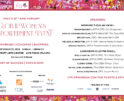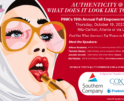
Purpose-Washing

BP America’s catastrophic oil spill is of world significance and will have residual effects on marketers who spew out slick messages that ultimately surface as untrue.
By Joey Reiman
*opinion piece
BP, formerly The British Petroleum Company, is guilty of purpose-washing.
Purposeful brands guarantee us that they are here for more than profit. They also exist to protect, inspire and serve society: indeed to improve the world. But what if you say you are purpose-driven in your communications but don’t back up your promise with policies, programs and other actions?
The recent disaster in the Gulf of Mexico is the worst oil spill in history, killing eleven people and virtually wiping out fisheries, wildlife sanctuaries and beaches in the spill’s path. As many as 400 species are now endangered.
Yet, BP spent more than $100 million on a rebranding effort that positioned them as a source for alternative clean energy. And they continue to spend billions on processing environment hampering fossil fuel and lobbying efforts to keep restrictions that could have prevented this spill to a minimum. When a company says it is doing the right thing and does something completely different – that’s purpose washing.
Having helped dozens of Fortune 500 companies discover, articulate and activate their authentic purposes, I know that damage ensues when a brand or company does not live up to its message. Trust inside and outside the organization disappears.
Today’s purpose powered brands follow a “Be-Do-Say” framework. That is “Be” true to the company’s DNA and purpose. “Do” deeds that reflect that purpose and then “Say” it in your communications.
Apple has creativity as its core. Founder and CEO Steve Jobs does everything to reflect that he thinks differently and his advertising lives up to his company’s promise.
There are other excellent examples, too, of purpose driven brands that back up their messaging. In 1928, a mother wanted to provide her allergic child with an alternative to conventional bread. She created what became known today as Pepperidge Farm. Her original focus on kids’ health gives the company the purpose and permission to have Goldfish crackers serve optimism to kids. The brand is No. 1 in their category because they are living their purpose; “When kids grow, we grow.”
This year Procter & Gamble’s CEO Bob McDonald declared purpose as the platform upon which all their brands will stand. It is no surprise that the metrics provide that higher ideals create higher profits, lower turnover and elevate the role of business in the world. The book Firms of Endearment, by Jagdish Sheth, shows how higher order ideals translate into meteoric profit.
After BP merged with Amoco in 1998, they adopted the tagline “Beyond Petroleum.” Yet, in truth, they are not beyond fueling their image as a benevolent brand while fooling the public. In addition to a 25 percent loss in BP’s value less than a week after the spill, the Obama administration is now questioning BP’s role in allowing the 2 million gallon leak. Maybe BP should get Beyond Purpose-washing.
Joey Reiman is a leading authority on purposeful excellence in business. He is CEO of the global marketing consultancy BrightHouse and teaches purpose and ideation at Goizueta Business School, Emory University.
Recommended
-
Fall 2024 EventNovember 19th, 2024
-
REGISTER HERE FOR THE UPCOMING...September 19th, 2024
-
Spring Sales Are Ready To Bloo...March 1st, 2024
-
Two Months Away!August 24th, 2023
-
Pink’s Signature Spring ...May 17th, 2023















